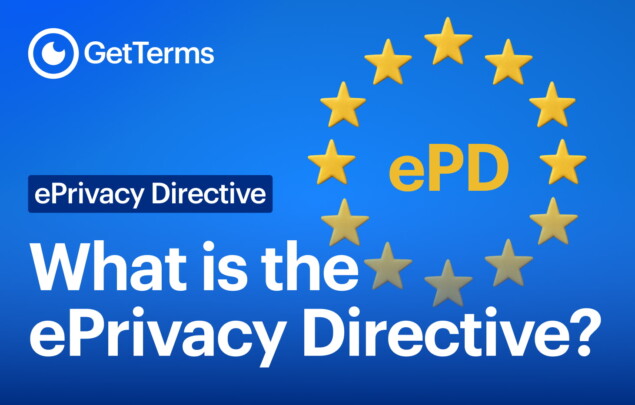What is the ePrivacy Directive?
A quick summary of everything you should know about the EU cookie law.

Create a GDPR-ready Privacy Policy, Terms & Cookie Banner in under 5 minutes.

Creating an app for your business is a great way to reach new customers and enhance their experience with your products and services. One of the first decisions you’ll need to make is whether you’ll be developing a web app or a native app.
In this article, we’ll explore the core differences and unique privacy considerations for each.
A web app is a software program that runs on a web server and is accessed through an internet browser. Common examples are SaaS apps such as Gmail and Microsoft Office 365.
A native mobile app is, as the name suggests, an app that is downloaded and run natively on a mobile device. Social media and other pre-installed apps on your phone are all types of native mobile apps, and not all require an internet connection to perform their intended functions.
When it comes to choosing which is best suited to your business, there are three major points of difference which should be considered:
While both types of apps can run seamlessly on a mobile device, a web app has limited access to the device’s features (such as a phone’s camera, files and built-in sensors) which can reduce the level of interactivity and immersion experienced by users. One standout advantage of native apps is that they can work offline and are built to run faster and more efficiently on mobile devices.
However, where web apps tend to outshine native apps is the experience they offer when their functions are more complex in nature and designed for users to do more complicated tasks.
Again, because a web app only requires users to have a browser and internet connection to work, users can access it regardless of their device or operating system.
A native app, however, will need to be developed for a specific OS which can get costly for business owners that want to reach both iOS and Android users.
Because native apps go through a rigorous vetting process before they are approved by app distributors, users can expect a high standard of quality, security and compatibility with their device.
On the other hand, web apps aren’t subject to any standardised quality control, which means they are only as safe and secure to use as each developer makes them.
By design, web apps are also more vulnerable to hacking: the use of remote servers, third parties and poorly maintained software all pose a risk to the protection of user data.
Many businesses choose to develop both web app and native app versions of their product or service, and the question that arises here is whether a separate privacy policy is required for each.
The short answer is that is really depends on your business and how your apps are managed.
The rule of thumb with any privacy policy is that is should be as accurate and transparent as possible. You can choose to have separate policies which clearly delineate the two apps, or you can create a single, comprehensive policy that covers all apps and websites your business owns.
Because there are strict requirements in place by native app distributors and each type of app collects different categories of user data in different ways, it’s important to review any applicable data protection and online privacy laws to ensure your web or native mobile app is compliant.
Get your app ready for launch with our easy-to-use Privacy Policy generator.
Create a privacy policy for your mobile app in less than 5 minutes
Privacy Policy Generator